JRC report confirms: nuclear power qualifies as green energy, is sustainable and fits into EU taxonomy
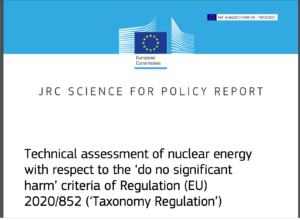
The Joint Research Centre (JRC), which supports EU policymakers with independent research and evidence-based information, assessed the full-cycle impacts of nuclear power generation on both climate objectives and the environment, with a particular focus on nuclear waste.
The JRC report concludes that nuclear power generation meets the criteria - it does not harm human health or the environment more than any other sustainable power generation technology.
The aim of the study was to find out whether nuclear energy meets the criteria of the European Union's energy taxonomy DNSH, or "no significant harm", under which, for example, renewable energy projects can benefit from EU financial instruments such as grants or loans.
The results of the JRC study are presented in the report "Technical assessment of nuclear energy with respect to the 'do no significant harm' criteria of Regulation (EU) 2020/852 ('Taxonomy Regulation')", the basis for inclusion in the EU's single classification system for sustainable finance. This document determines whether investments are considered "green" and "sustainable".
The comparison of energy mixes will use different scientific methodologies to assess, among other things, the environmental and economic impacts, as well as human health safety, in addition to supporting climate objectives.
"The study did not identify any science-based evidence that nuclear energy is more damaging to human health or the environment than the other climate-change-mitigating energies represented in the taxonomy. A comparison of the impacts on human health and the environment of different electricity generation technologies (e.g. oil, gas, renewables and nuclear) shows that the non-radiological impacts of nuclear energy are mostly comparable to those of hydropower and renewables," the report says.
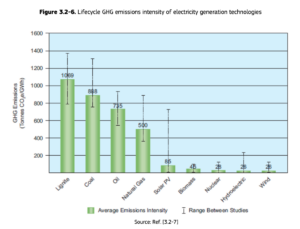
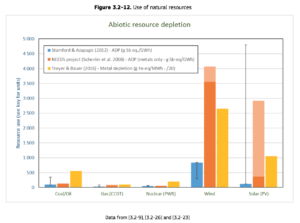
So far, nuclear energy has neither been included in nor excluded from the EU taxonomy, as the Technical expert group on sustainable finance (TEG) has previously recommended that nuclear energy be evaluated by experts with in-depth knowledge of the full nuclear cycle. The main issues addressed by the TEG concerned the management and disposal of radioactive materials.
The JRC report now underlines that "there is a broad scientific and technical consensus that the disposal of high-level long-lived radioactive waste in deep geological deposits is considered, according to modern knowledge, to be an appropriate and safe way of separating the waste from the biosphere over a very long period of time".
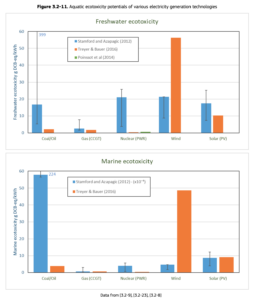
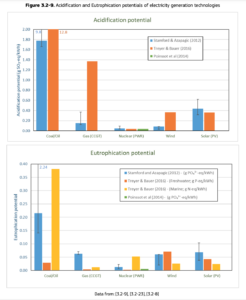
In 2020, the European Commission started an in-depth work to assess whether or not to include nuclear energy in the EU's taxonomy of environmentally sustainable activities. As a first step, the Joint Research Centre (JRC) produced a technical report on the compliance of nuclear energy with the "no significant harm" criteria. This report will serve as evidence-based input to the European Commission for policy development - before adoption, it will be reviewed by two independent expert panels - the Expert Group on Radiation Protection and Waste Management and the Scientific Committee on Health, Environment and Emerging Environmental Impacts. The expert panels will submit their reports to the European Commission within three months.
On the same subject: World Nuclear News, Reuters, Euractiv, World Nuclear Association, Foratom
